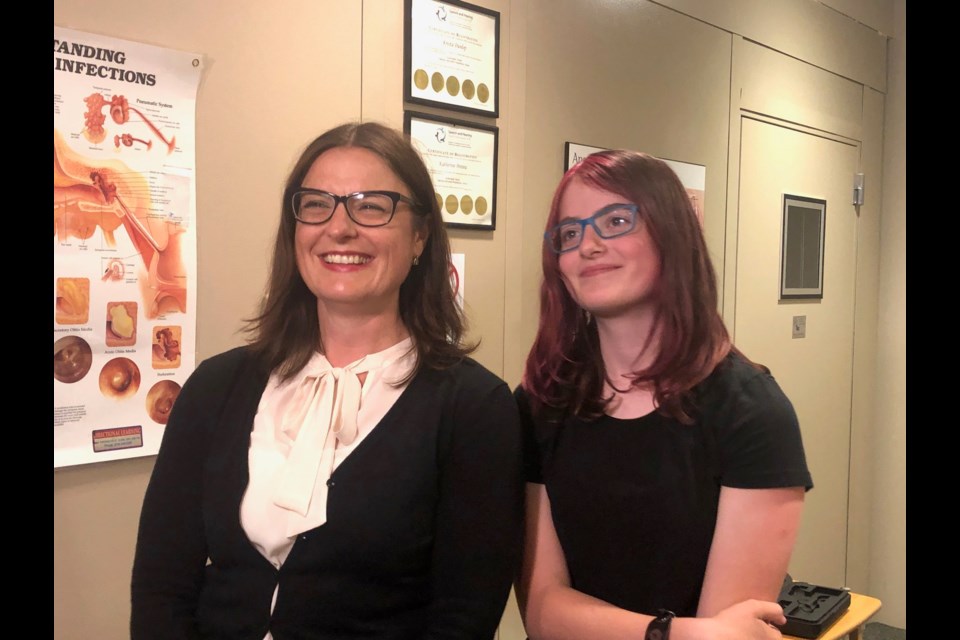Lily Palmer is a 13-year-old girl from Prince George who has a cochlear implant.
She’s also one of the first patients in Canada to take part in a new health service called virtual mapping.
B.C. Children’s Hospital has launched a first-in-Canada ongoing remote clinical service for cochlear implant patients in the northern capital.
It’s known as virtual mapping and allows an audiologist to video-conference with a patient.
The audiologist, via laptop, takes over the cochlear implant programming software to tune and adjust the implant.
“More than a year ago we were contacted by B.C. Children’s Hospital who said they were considering setting up telehealth as a possibility for the north and would we be willing to volunteer to help them do some early testing,” says Lily’s mom Andrea Palmer. “When we were down south for one of our regular visits in Vancouver, they had Lily do a bit of a test with the technology itself.”
B.C. Children’s Hospital in Vancouver is the only location in the province where children can access cochlear implant technology and support.
For those who are unfamiliar, a cochlear implant is an electronic medical device which, in a nutshell, replaces the function of the inner ear by digitally providing sound signals to the brain - whereas a hearing aid simply amplifies sounds.
“She is still a deaf person, but this is a pretty miraculous device that gives her access to sound,” says Andrea.
From age one to 18, kids with cochlear implants travel an average of 30 times to Vancouver to get their cochlear implant mapped.
Thanks to this technology, Lily and Andrea were able to go to the University Hospital of Northern British Columbia (UHNBC) in Prince George today (June 27) for Lily's first virtual mapping appointment, avoiding a trip to Vancouver.
“One thing that is important for Lily is to be able to see the faces of the people talking to her and to be able to lip read when she has her equipment turned off,” says Andrea, adding that the screen was crystal clear.
“It’s really, really cool. I’m happy to do it,” says Lily, who at 13 years old typically needs to have her cochlear implants adjusted annually.
Children who have recently been implanted could be going down to B.C. children’s up to six times a year because audiologists need to make adjustments to be able to customize the implant for each child to ensure it’s working optimally for them.
“That’s what we did for the first couple of years post-implant, so in her toddler years, there was a ton of travel. We are lucky in that I have family in the Lower Mainland and could stay with them,” says Andrea. “Telehealth in this capacity is a huge saver and the fact that it works and is so clear it’s is just amazing.”
Families in the north will still have to access B.C. Children’s for cochlear implant appointments, but the virtual cochlear implant service can help reduce the number of times they would need to come and supplement the quality of care.
Currently, there are approximately 250 deaf and hard of hearing children with cochlear implants in the province and B.C. Children’s provides about 35 new cochlear implants each year.
Adult cochlear implants services are accessed through St. Paul’s Hospital in Vancouver, but as the technology is still new, virtual mapping is not yet being utilized for adult patients.



